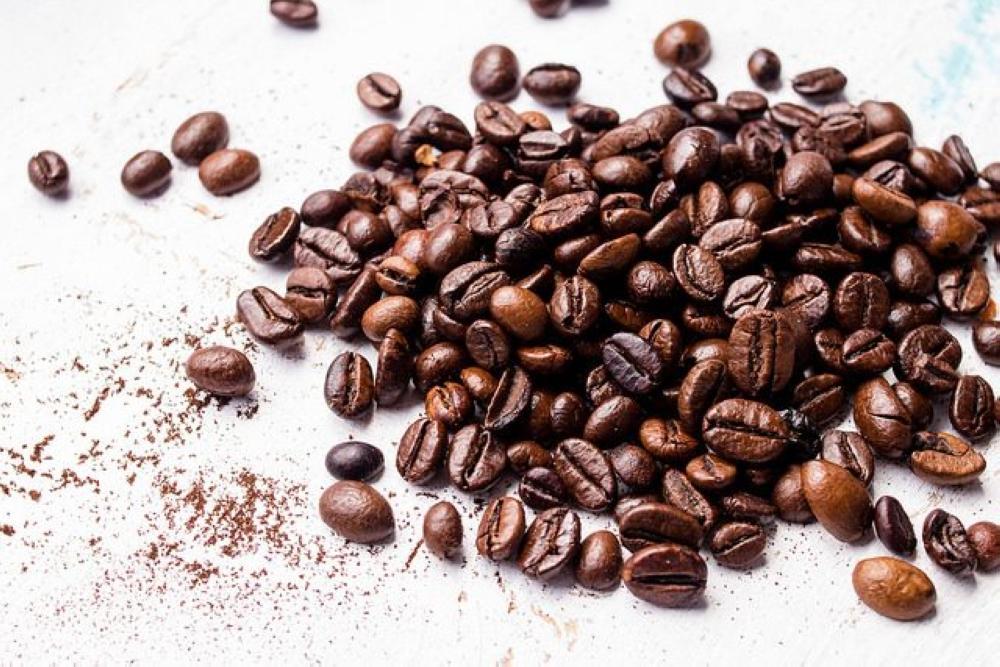Africa-Press – Rwanda. Rwandan coffee exporters are stepping up efforts to meet the European Union Deforestation Regulation (EUDR), though the process has brought high costs according to industry players and experts.
The EUDR requires companies exporting products such as coffee, cocoa, and palm oil to the EU to prove they are deforestation-free. Products must not come from land cleared after December 31, 2020, and exporters are required to trace them to their source and submit a due diligence statement to the EU system.
Initially set to take effect by December 2024, the regulations were postponed and will now be enforced by December 2025.
The EU region is one of the key markets for Rwandan coffee, with countries like Switzerland importing over 3,710 tonnes valued at $18.4 million in 2023/2024, accounting for 23 percent of total coffee export earnings during that year.
Other European buyers include Sweden (856 tonnes, nearly $4 million), Italy (898 tonnes, more than $3.4 million), Germany (655 tonnes, $3.4 million), and Finland (730 tonnes, $3.1 million).
Wellars Karangwa, the Manager of Muhondo Coffee, said complying with the EUDR has been both costly and demanding. Mapping all farmers in their network by collecting GPS coordinates was one of the main challenges.
“We had to hire workers to help us gather that data, which cost us at least Rwf2 million,” he said. “In addition, we had to adjust our certification system. That meant renewing certificates even before the old ones expired, and that cost us around $7,000 (approximately Rwf10 million).”
Even before the regulation takes effect, Karangwa said the EU market demand has decreased, despite being a high paying market.
“The EU market usually pays higher prices, around $8.5 per kilo, compared to other markets that offer just $6 per kilo for free-washed coffee without requiring quality scores,” he said.
Muhondo Coffee which cultivates coffee on 15 hectares and works with 1,800 farmers, before 2024, exported 40 tonnes of green coffee annually to the EU, half its total annual exports of 80 tonnes. That dropped to 14 tonnes last year, though exports to the EU have since recovered to 20 tonnes.
In terms of preparations to comply with the regulations, he said “we are making progress, and we are hopeful that by next year, things will be smoother.”
Gaston Rutaganda, Chief Executive Officer of Rwamatamu Coffee in Nyamasheke District, said his company began mapping farmers early and did not find it a challenge.
He welcomed the EUDR, saying it protects the environment and improves operations.
“Any change gets difficult but the regulations are aimed at standardising the operation,” he said.
Rutaganda explained that tracking products with GPS not only ensures compliance but also allows him to advise farmers on good production methods.
His company used to export around one tonne of coffee annually, with 60 per cent going to Europe. That share has now grown to 70 per cent.
John Rebero, an expert in the coffee value chain, criticised the EU for developing its standards “without engaging farmers or key stakeholders. Now we are left scrambling to catch up with regulations that were imposed unilaterally. It’s a fait accompli.”
He noted that Rwanda is relatively well-positioned because EUDR requirements align with national climate resilience policies, but warned that “farmers still bear the costs of compliance and education, which raises production expenses, and unfortunately, the market doesn’t cover those added costs.”
Rebero urged African nations to diversify markets, suggesting local consumption, value addition and tapping into East Asia.
“China is a sleeping giant when it comes to coffee,” he said. Pakistan and India also hold promise, with Pakistan already taking more than 50 per cent of Rwanda’s tea exports.
He also sees opportunities within Africa. “Roughly 60-70 per cent of tea and coffee consumed in West Africa and Southern Africa is imported from Europe or America, but that’s the same tea and coffee that was produced here in Africa,” he said, adding that the African Continental Free Trade Area could help capture that market.
National measures
Claude Bizimana, Chief Executive Officer of the National Agricultural Export Development Board (NAEB), told The New Times that several actions are ongoing to help farmers and exporters meet the EUDR requirements.
NAEB, together with exporters, cooperatives, and partners, is mapping coffee plots through a National Coffee Census. “The resulting data will be essential for verifying deforestation-free sourcing and supporting traceability efforts,” he said.
In partnership with BKTechouse, NAEB set up the Smart Kungahara System, “which tracks coffee from farm to export” and “ensures end-to-end supply chain transparency and supports compliance with EUDR traceability standards.”
Training sessions for farmers and exporters, conducted with ITC/MARKUP, focused on “deforestation criteria, supply chain due diligence, geodata collection, and the appropriate digital tools available to support geodata gathering and compliance.” Bizimana noted,
“Due to this capacity building, Rwanda exporters who export in Europe collected the geodata of the plots from which they source their coffee.”
Rwanda has been classified as a low-risk country for EUDR compliance. Bizimana said, “Operators sourcing from low-risk countries like Rwanda benefit from simplified due diligence, including only a 1 per cent compliance check rate by EU authorities.”
Over 70 per cent of exporters have collected geodata, and audits found “none of the assessed coffee plots have been found to contribute to deforestation or forest degradation.”
Looking ahead, Bizimana said, “the coffee census to map and geolocate all coffee plots is underway, aiming to achieve 100 per cent geolocation coverage and enable real-time deforestation monitoring ahead of the EUDR enforcement.”
He added that “the Smart Kungahara System will be enhanced to integrate all geodata and support an end-to-end traceability system” and that “EUDR awareness campaigns will continue to educate all relevant stakeholders on the regulation’s requirements and promote sector-wide preparedness.”
For More News And Analysis About Rwanda Follow Africa-Press






